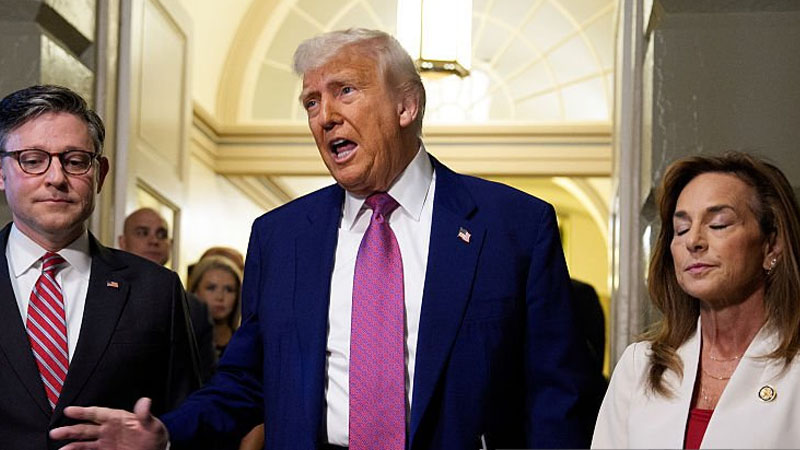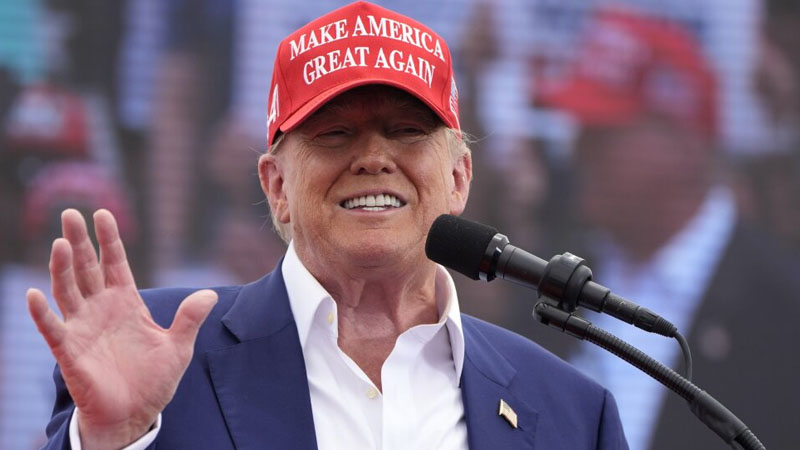President Donald Trump is reportedly stalling on whether to support Israeli airstrikes against Iran’s nuclear facilities, with insiders revealing that his hesitation is driven by concerns about repeating the chaos that followed the U.S.-backed intervention in Libya.
According to a report by the New York Post, White House officials say Trump has raised the example of Libya multiple times during internal deliberations about potential military action. In particular, the president is said to be wary of destabilizing Iran in a way that could mirror Libya’s descent into chaos following the 2011 ousting of Muammar Gaddafi.
“He doesn’t want it to turn into Libya,” one official familiar with the discussions told the Post. In the days leading up to Israel’s recent airstrikes on Iranian targets, Trump reportedly cited Gaddafi’s fall as a cautionary tale.
“There are two reasons Trump talks about Libya: the first is the chaos after what we did to Gaddafi,” a source said. “The second is that the Libya intervention made it more difficult to negotiate deals with countries like North Korea and Iran.” Trump has long criticized past U.S. interventions in the Middle East, including in Iraq and Afghanistan.

Sources told the Post that he also brought up these conflicts while discussing the potential consequences of joining Israeli efforts against Iran. “There is still dealing with Iran’s response,” another insider noted, pointing to fears of possible retaliation, including terrorism or broader regional conflict.
While Trump has taken a hardline stance against Iran throughout his presidency—exiting the nuclear deal and reimposing severe sanctions—his resistance to military escalation appears rooted in a belief that diplomacy is ultimately more effective and politically appealing to his supporters.
“As far as President Trump goes, he’s not going to get in the business of who runs Iran,” one administration official said. “That’s very salable to his base. He’d rather have a deal.” In 2011, a U.S.-led NATO campaign helped overthrow Gaddafi after more than four decades of rule.
The power vacuum that followed plunged Libya into years of violence and instability, a situation Trump has repeatedly referenced as a warning against regime change operations.
The president’s caution reflects a broader reluctance to commit to military entanglements abroad—a position that continues to shape his approach to foreign policy and nuclear negotiations. Whether this restraint will hold in the face of escalating tensions with Iran remains to be seen.

